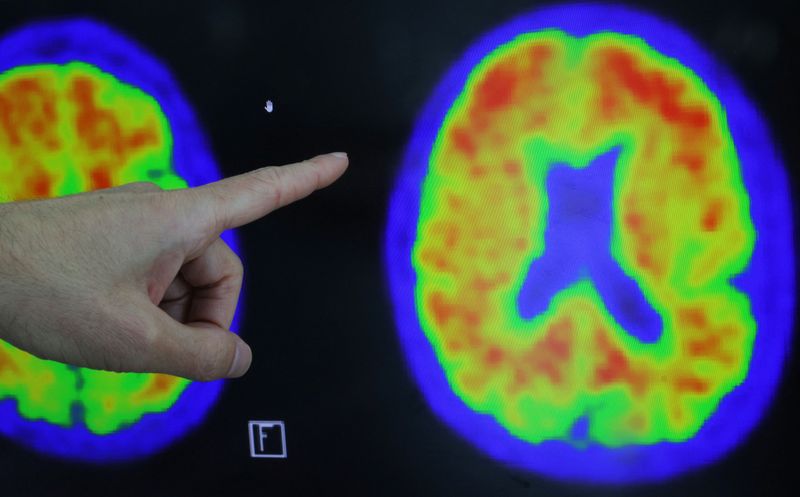By Julie Steenhuysen
CHICAGO (Reuters) - The U.S. National Institute on Aging (NIA) is funding a 6-year, up to $300 million project to build a massive Alzheimer's research database that can track the health of Americans for decades and enable researchers to gain new insights on the brain-wasting disease.
The NIA, part of the government's National Institutes of Health (NIH), aims to build a data platform capable of housing long-term health information on 70% to 90% of the U.S. population, officials told Reuters of the grant, which had not been previously reported.
The platform will draw on data from medical records, insurance claims, pharmacies, mobile devices, sensors and various government agencies, they said.
"Real-world data is what we need to make a lot of decisions about the effectiveness of medications and looking really at a much broader population than most clinical trials can cover," Dr. Nina Silverberg, director of the NIA's Alzheimer's Disease Research Centers program, said in an interview.
Tracking patients before and after they develop Alzheimer’s symptoms is seen as integral to making advances against the disease, which can start some 20 years before memory issues develop.
Alzheimer's research has been galvanized by Leqembi, a new treatment from Eisai Co (OTC:ESAIY) Ltd and Biogen Inc (NASDAQ:BIIB) that slows advance of the disease in early-stage patients.
The database could help identify healthy people at risk for Alzheimer's, which affects about 6 million Americans, for future drug trials. It also aims to address chronic underrepresentation of people of color and different ethnicities in Alzheimer’s clinical trials and could help increase enrollment from outside of urban academic medical centers.
Once built, the platform could also track patients after they receive treatments such as Leqembi, which won accelerated U.S. approval in January, and is widely expected to receive traditional FDA approval by July 6.
The U.S. Medicare health plan for older adults will likely require such tracking in a registry as a condition of reimbursement for Leqembi.
"We didn't design it for that purpose," Silverberg said, but "it might be possible" to use it for that purpose.
The Centers for Medicare and Medicaid Services, which runs the U.S. Medicare insurance program, did not respond to a request for comment.
Silverberg said the data platform could also help researchers working in other disease areas understand which patients are most at risk and the impact of medications.
During the pandemic, the U.S. lagged other countries with national health systems in being able to analyze patient data for COVID-19.
The system would be built in a secure computing environment with a number of restrictions to ensure the privacy of people's health data, Silverberg said.
The grant, which was posted on March 13, has been years in the making. The funding announcement sets its earliest start date at April 2024, with a goal to establish an Alzheimer’s registry 21 months later.
Several stakeholders including Medicare and patient advocacy groups the Alzheimer's Association and UsAgainstAlzheimer's took part in a workshop last spring to discuss the design of the platform.
Alzheimer's Association Chief Science Officer Maria Carrillo said in an interview that the organization plans to apply for the NIA platform grant, which will award $50 million a year for up to six years.

Partha Bhattacharyya, chief data officer of the NIH Office of Data Resources and Analytics said: "We envision this platform will allow researchers to recruit across the United States."
"If we are to play a greater role in prevention, we must start early. That is not at age 65," he said.